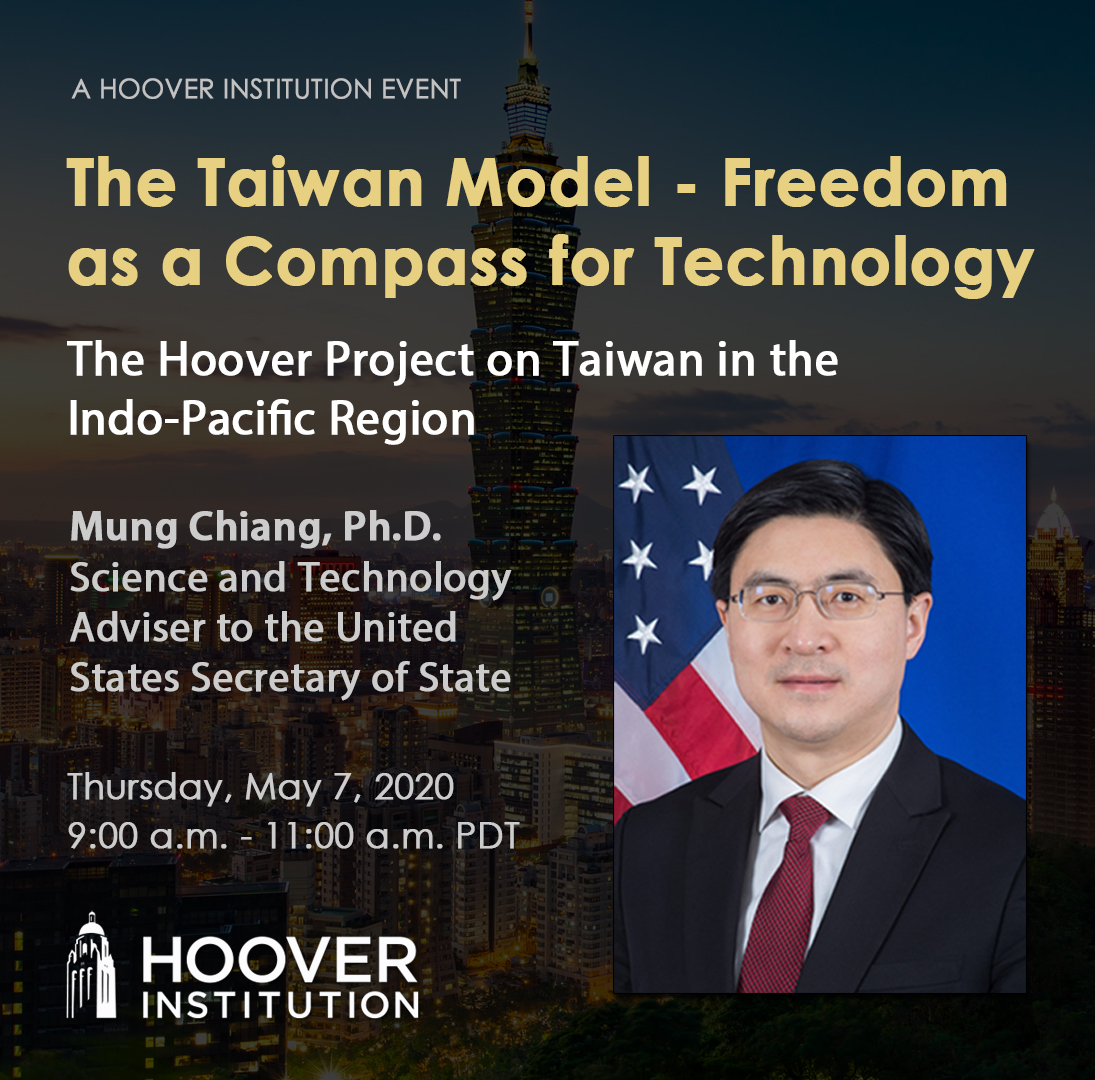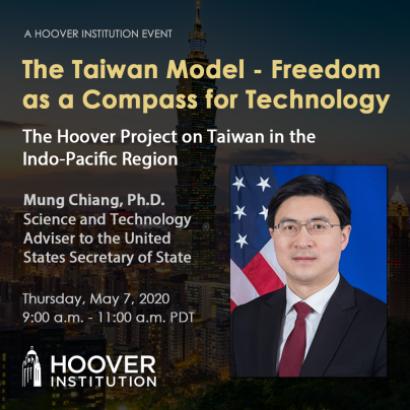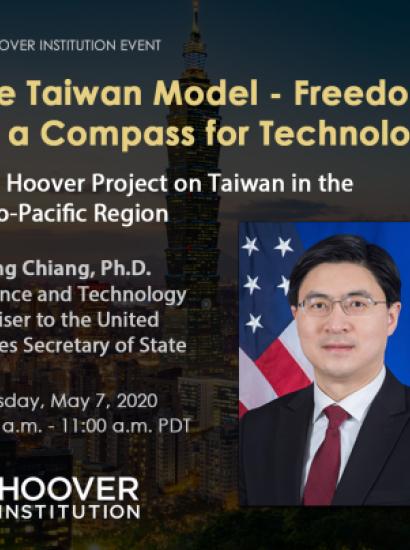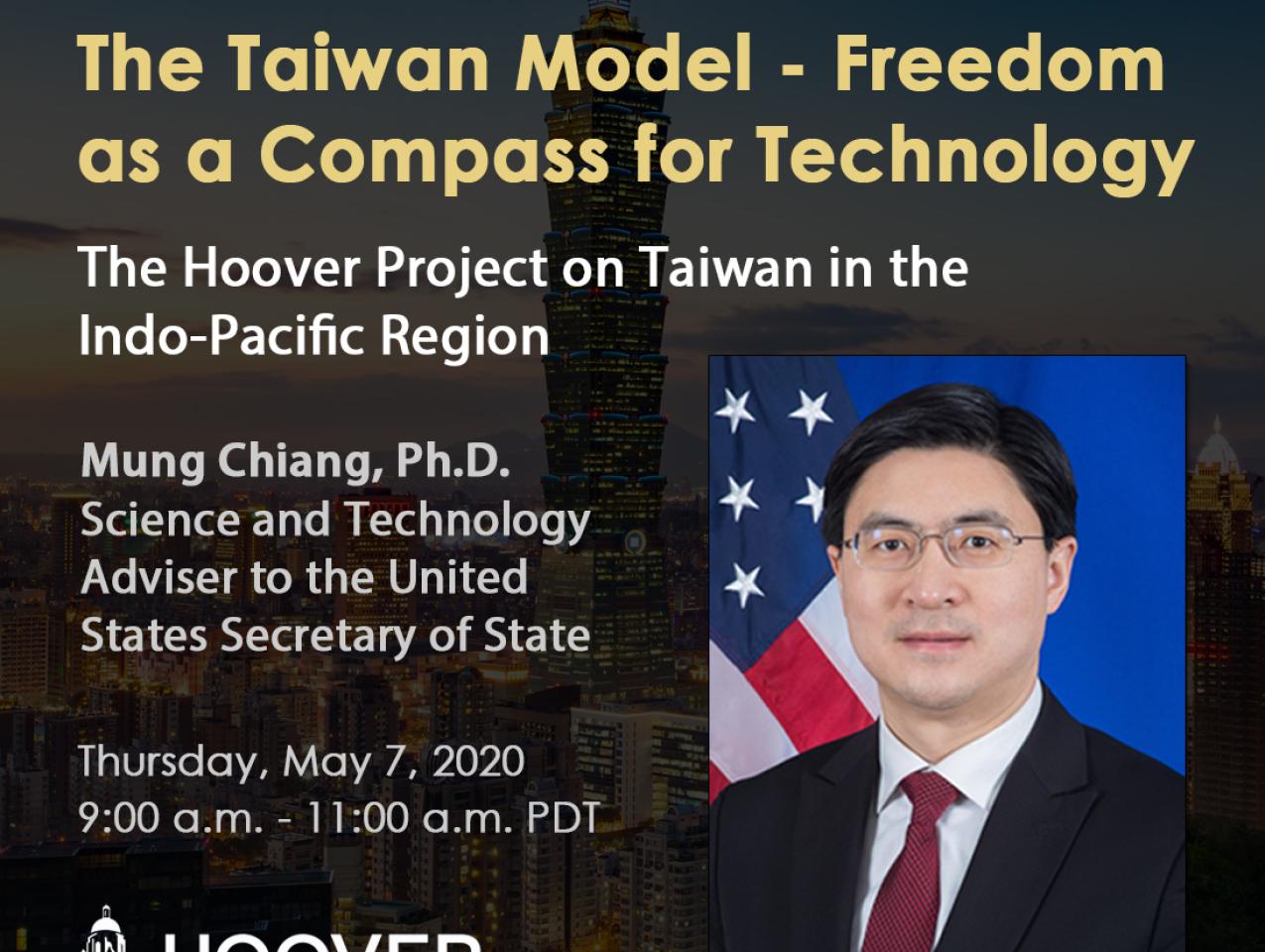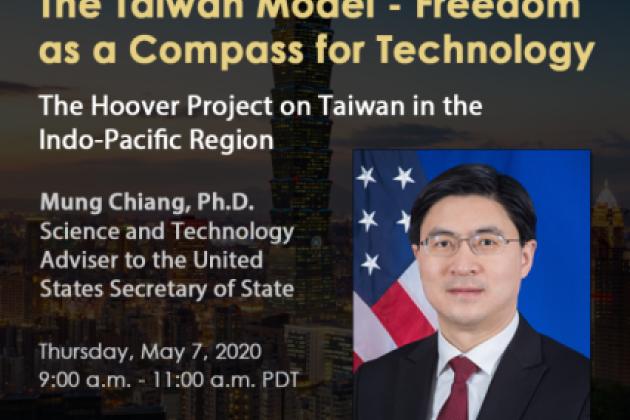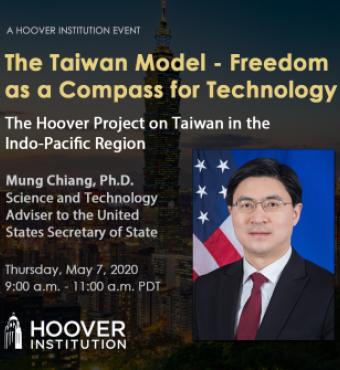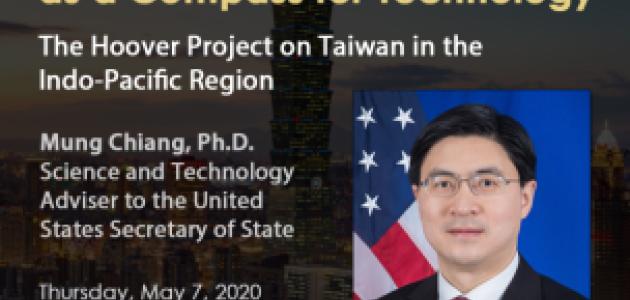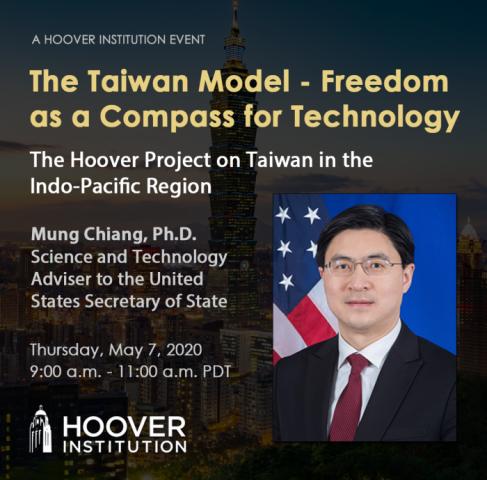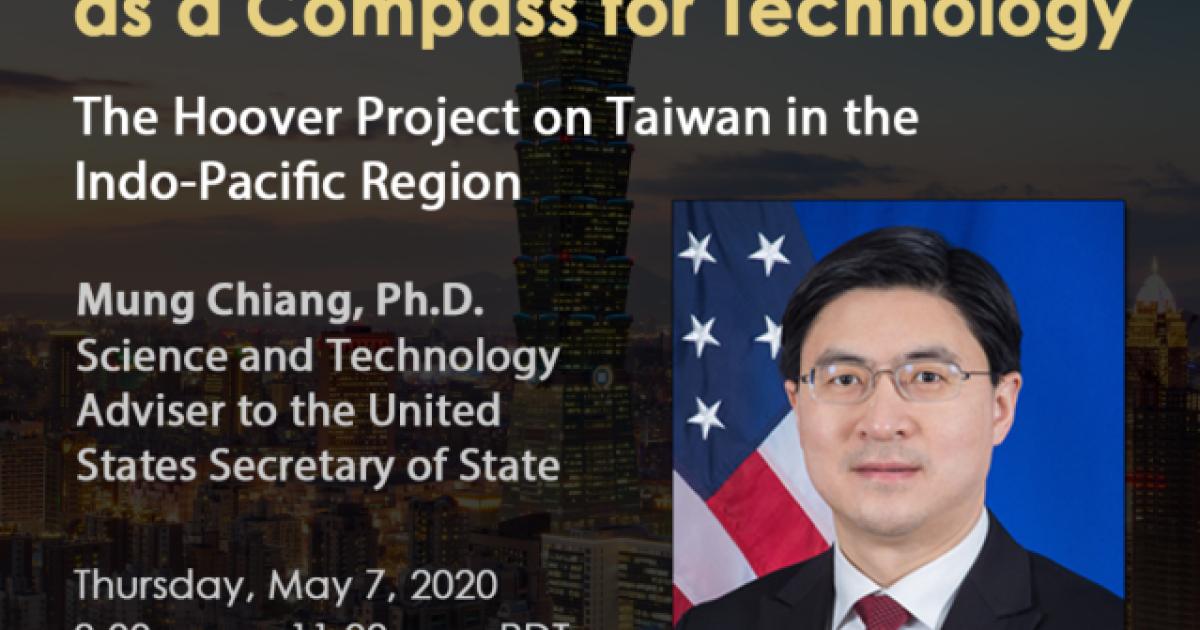
by Mung Chiang, Science and Technology Adviser to the Secretary, Office of the Science and Technology Adviser
WATCH THE VIDEO
READ THE REMARKS
We gather here today across the ocean to share what we have learned over the past six months. Sometime in Fall 2019 and somewhere inside Wuhan in Hubei Province of PRC, the SARS-Cov-2 virus started spreading. Today, the world is still looking for truths about the origin, timeline, and death toll in PRC.
In stark contrast, Taiwan delivered the inseparable duo of success and transparency in its fight against the pandemic. Despite physical proximity to PRC, the numbers of infection, hospitalization and fatality have been extremely low in Taiwan. Despite the exclusion from meaningful participation in the World Health Organization, Taiwan demonstrated to international communities a new model: digital health solutions can be deployed effectively without sacrificing human rights and fundamental freedom in a democracy.
It has been widely reported, and discussed in the preceding keynote and panel, that Taiwan’s public private partnership rose to the challenge: merging databases to maximize the power of big data, designing online apps and maps for resource allocation, and launching mobile platforms for rapid response, all under the Communicable Disease Control Act updated by a democratically elected legislature. Upon an accelerated ramp-up of its PPE production capacity, Taiwan sent millions of masks overseas as true gifts. I can hardly add details beyond what has been articulated on the success of the Taiwan Model. I would therefore ask for your indulgence in exploring its foundation and implications.
As Nobel Laureate Amartya Sen said: “famines do not occur in democracies.” Conversely and not surprisingly, totalitarianism has always been a hotbed for epidemics. And once a public health crisis spreads, the Taiwan Model illustrates the fundamental role of digital liberty: transparency to and, when possible, consent by the users, as well as recourse, when either is hampered, through free press and an independent judiciary. Individual freedom, rule of law, and a democratic check-and-balance system engender transparency and ensure accountability, which in turn sustain that most precious currency during a health crisis: public trust.
Transparency gives wings to information. Information flow and free press are essential for individuals to make informed decisions during a pandemic. It is equally true that, when information is locked down by curtains of lies, fear can spread faster than virus. Transparency protects people from the deadly virus of tyranny, so that activists and dissidents will not be arrested under the guise of quarantine. And transparency concerns not just how much information the government collects, but how much each person receives. We recall that, in the same month, while Dr. Li Wenliang was getting harassed and silenced for murmuring on social media in PRC, Audrey Tang and her team were creating mobile apps to disseminate information in Taiwan.
We have also heard varied calls for international collaboration. Collaboration is not a mere act of working together, but must be built on the foundation of transparency, openness, and reciprocity. In the true spirit of international collaboration, and on the heels of Taiwan’s contribution to the world, it is as beneficial as it is urgent for WHO to reciprocate by allowing Taiwan to participate as an observer again at the World Health Assembly, as Secretary of State Pompeo emphasized yesterday.
We cannot take the Taiwan Model for granted. It is shaped by a trio of formative experience. First is the hard lesson learned from SARS-CoV-1 in 2003 and an acute understanding that, if a government does not respect the freedom of expression, its information cannot be trusted. Second is the vigilance developed over decades of living under the shadow of threat and unrelenting pressure. Third is that painful yet triumphant transformation from authoritarianism to liberal democracy that has awaken the citizens to their rights and nurtured a vibrant civic society.
From the silicon foundries of Hsinchu to the farmland of Tainan, from the mountains of Pingtung to the ports of Keelung, the people of Taiwan have proven to the world that all humans are endowed by their Creator with certain unalienable Rights, Rights that transcend ethnicity, culture and language.
Taiwan is not an isolated island that perseveres just by itself. It is a beacon of hope and, in Secretary Pompeo’s recent words, “a model for the Indo-Pacific region and a force for good in the world.” Mr. Secretary also highlighted to all fifty governors three months ago that Taiwan remains “a key business partner and a friend in every other way” to America. For example, we encourage Taiwan students to study here, researchers to collaborate with U.S. scholars on a full range of academic pursuits, and ties with the Taiwan scientific community to grow. And two months ago, U.S. Congress unanimously passed the Taiwan Allies International Protection and Enhancement Initiative Act that the President has signed into law.
The United States shares with Taiwan the core values of free people, free society, and free enterprises. We thank Taiwan for giving us something to rejoice during these days of toil and tribulation. Instead of just Orwell’s 1984, the global community has witnessed the hope of Taiwan’s 2020. Freedom is the cornerstone of trust during public health crisis. Freedom is the north star for technological advance. Even in the most precarious times and through unchartered waters, freedom shall prevail for us all.
Click to see original article.
ABOUT THE SPEAKER
Mung Chiang is on an IPA detail at the U.S. Department of State from Purdue University, where he is the John A. Edwardson Dean of the College of Engineering and the Roscoe H. George Distinguished Professor of Electrical and Computer Engineering. Under his leadership, Purdue Engineering became the largest top-10 engineering college in the United States, and achieved milestones in education, research, online learning, entrepreneurship, diversity, economic development, industry collaboration, global partnership, philanthropic support, physical infrastructure and talent development.







